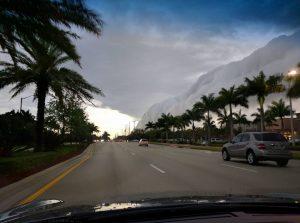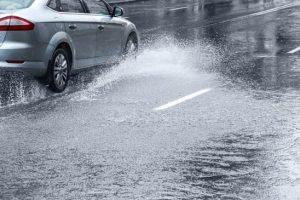
It is always best to avoid driving in rain, fog, snow or icy conditions. Unfortunately, this is not always possible.
The risk of an accident increases in poor weather. Low visibility and slippery roads increase the likelihood of a crash. When combined with negligent driving, these conditions can be deadly.
Some drivers become complacent and do not respond accordingly to poor weather. If you were injured due to another driver’s mistake, then you may be entitled to compensation for medical bills, time off work and other damages.
A Shreveport car accident lawyer from Morris Bart, LLC can guide you through the claims process. We can help you avoid mistakes such as settling for an amount that is less than what you deserve.
Call 800-537-8185 to schedule a consultation. Until then, read on to learn five tips for driving in bad weather:
Reduce Your Speed
Real Simple highlights the importance of reducing your speed in poor weather. Even if you have a vehicle with all-wheel drive, you should reduce your speed to approximately 10 miles per hour below the limit. If you still feel uncomfortable, reduce your speed by another 5 miles per hour.
For a free legal consultation, call 800-537-8185
Do Not Tailgate
Tailgating can lead to accidents in all weather conditions, but it is particularly common when visibility is low or the roads are slick. In bad weather, you should increase your following distance from the leading vehicle to at least 100 yards.
This will give you enough time to brake if the leading vehicle stops unexpectedly. However, do not drift too far back from the car in front; you can use its headlights for guidance.
Avoid Using Cruise Control
It may be tempting to use cruise control in bad weather so you can focus on the road ahead, but according to the American Automobile Association, this can be dangerous. It is safer to deactivate your cruise control. This can help you respond appropriately to unexpected hazards.
Click to contact our personal injury lawyers today
Turn on Your Fog Lights
Use your fog lights if you are driving in overcast or foggy conditions. Most fog light switches are on the same lever or dial as the car’s main headlights. These yellow lights will help other drivers see you, and they will help you notice hazards by illuminating the road ahead.
Avoid Flooded Areas
Do not attempt to drive through flooded areas. Your vehicle may suck water into the engine, which could cause it to shut off. Avoid flooded bridges and roads; instead, look for a detour or wait for the water levels to subside.
If you were in a crash due to another person’s negligence, you should not have to pay for medical bills and time off work out of your own pocket. A Shreveport auto accident lawyer from Morris Bart, LLC can guide you through the claims process. Call 800-537-8185 to schedule a consultation and discuss your legal options.
Questions?Call 800-537-8185
to find a Morris Bart office near you.




